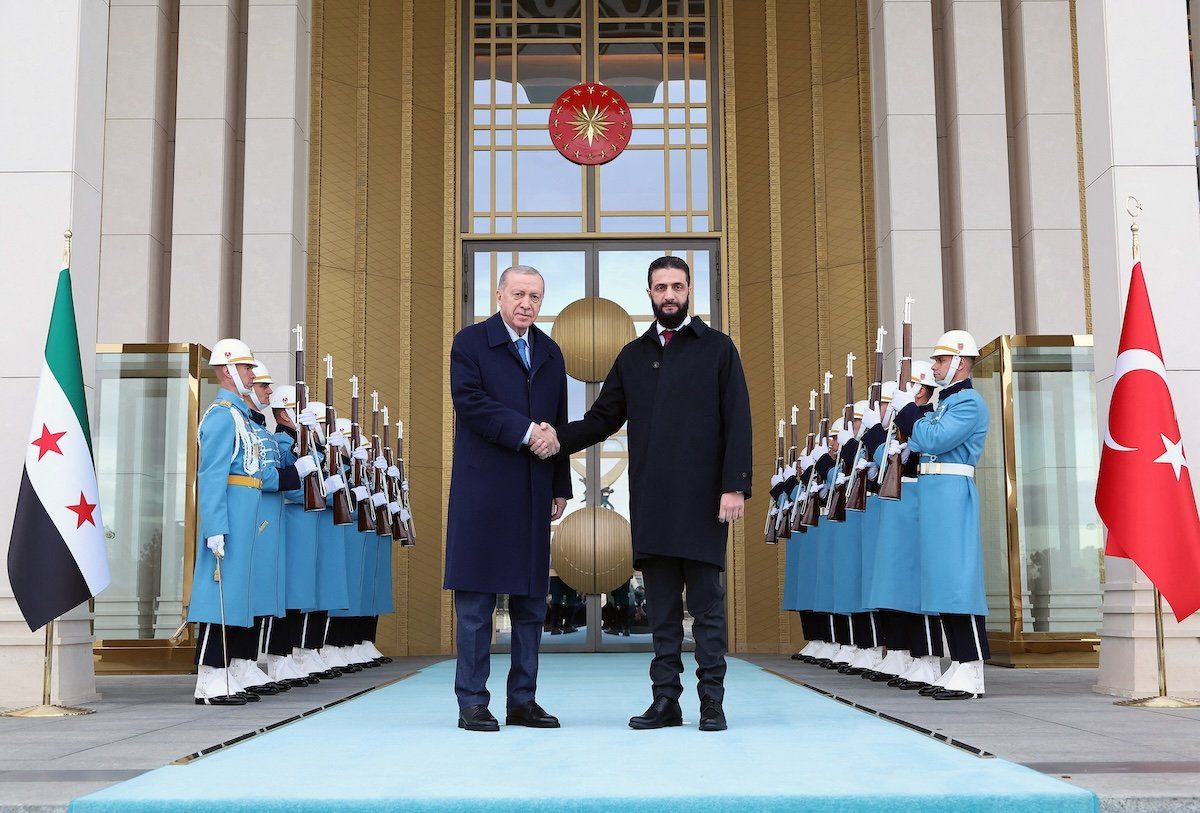In early December, the fall of the Assad regime in Syria – a longstanding ally of Iran – left a power vacuum at the heart of the region.
Now, someone is moving into it. On Tuesday, Syria’s transitional president, Ahmad al-Sharaa, met with Turkish President Recep Tayyip Erdogan to discuss a security pact that would reportedly involve Turkey setting up air bases in Syria and training a new Syrian military.
This isn’t surprising: Turkey was a primary backer of al-Sharaa’s jihadist militia, Hay’at Tahrir al-Sham, which led the campaign that toppled Assad in December. Erdogan’s main interests in Syria are to squelch Kurdish militant groups operating there and to create conditions for the return of millions of Syrian refugees from Turkey. (See more here.)
Other interested players are watching. Saudi Arabia, Egypt, and the Emirates all view Turkey’s Islamist politics with suspicion, though Erdogan has sought to smooth ties recently. Russia, meanwhile, is still trying to hang on to its Syrian military bases. And Donald Trump has said Syria is “not our fight” but also wants to prevent a resurgence of Islamic State there. This is why US troops are still deployed with precisely the Kurdish groups in Syria that Erdogan wants to crush.
As ever, it’s complicated: But Turkey is now the first big outside player in the new Syria.